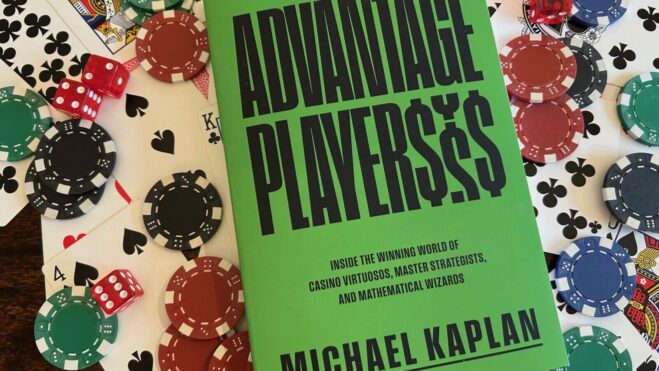Schuetz: What You Don’t Know Can Hurt You
An experienced insider’s perspective on casino compliance and on the blind leading the blind
7 min

“Anything that can go wrong, will.”
— Murphy’s Law, attributed to Edward A. Murphy, Jr.
One evening, back in the day when slot machines were driven by coins, I was walking outside a Las Vegas hotel-casino where I was the new senior casino executive, and the facility had a series of fountains in front of it. I noticed that there were some serious coins within the fountain. I returned to my office and began reviewing our financial reports for a revenue item related to the fountains. I could not find it.
By coincidence, the next day we had a staff meeting. I asked the group a question as to who knew what happened to the coins that were thrown into the fountains. I noticed the facilities guy was seemingly trying to hide behind our rather large security chief, so I called his name to see what he knew.
He said that when they cleaned the fountains, they would toss the coins into a can, and the folks in maintenance and facilities would use it for a little party at the end of the year.
I then instructed the facilities manager that, in the future, a security guard would be present during the cleaning, and the coins would be placed into a designated container. The guard and one of the workers would then take the coins to the cage, where they would be logged as “miscellaneous revenue — fountains.”
It turned out that at year’s end, that was a $44,000 line item.
Help wanted
Running a casino facility is an incredibly humbling experience, as it involves managing a large number of complex and interdependent parts. Because of the overwhelming complexity of it all, I would sometimes hire extra help of a curious type. This may be a street guy who knew who was doing bad things in town, someone else to see if any of the bartenders were running girls, and stuff like that.
On occasion I used “shoppers,” a term for hired consultants who behave as customers and report their experiences back to me. Once, while using two women (who happened to be quite attractive) as shoppers, two of our department heads encountered them late one evening, sitting in the keno lounge. They did not know they were shoppers. The gentlemen bought them a few drinks and then asked the women if they would like to take a jacuzzi in the dressing room provided for the entertainers appearing in our headliner room (the showroom was dark that evening).
It was funny the next day when I invited the two gentlemen into my office and read the report to them. It was a valuable learning experience for both, and they genuinely became more focused managers as a result. They did not want to piss me off a second time.
I was also called to a pit one day in the early 1990s, and one of the floor people showed me a deck of cards. It was an incredibly good crimping job (crimping is a method of marking cards, and this was on a hand-held game).
I called the “eye” and instructed them to hold all footage of the game and to review the quality of what we had. I also reviewed the game inventory sheets and was confused by the numbers I found there — the game was positive.
I also protected the deck. I then spent several hours reviewing the film, and back then, it was film.
I did not, however, contact gaming control, as I did not feel comfortable with what I was seeing.
To this day, I am convinced that the floor person set up that deck and moved it into inventory to “discover it later,” and that would be a simple enough thing to do.
Floor people want to advance in the casino business because most of them, when transitioning from dealer to floor person, accept a significant increase in responsibility and a decrease in compensation. They therefore want to advance, if for no other reason than to return their incomes to a level they experienced as a dealer.
To advance, they need to stand out, and it is often hard to do so when the basic job description is to stand in a table game pit and watch people play cards or dice. Sure, the person wants to dress well, be friendly, offer excellent guest and employee service, and all of that. But the main thing is to protect the games and the bankroll. I believe that this guy planned on a great coup as a Johnny-on-the-spot game protector. It did not work out for him.
When I left that company several years later, he was still watching games. I could not justify firing him, nor could I justify advancing him.
‘The absolute chaos that is a casino’
One may note that to survive in such a world, a person needs to possess a jaundiced view of humanity found within a casino. Whenever two members of casino management are discussing something on the casino floor, they should be shoulder to shoulder, facing in opposite directions. Why? Because they are paid to watch the store, and all who are in it.
I bring all of this up to try to explain to the reader the absolute chaos that is a casino. There is nothing like it in the world, and it contains a ton of moving parts. There is noise from the lounges, the overhead music systems, the paging, the celebrations, the drinking, a bunch of loud-mouthed gamblers … and as Mr. Murphy explained … anything that can go wrong does.
Oh, and there are these monetary units shaped like small discs called chips or cheques that can be worth a great deal of money and can be palmed in a person’s hand.
So, how does the industry ensure that all of this is running correctly and in compliance with policy, procedures, and all regulations? By hiring lawyers, technical systems personnel, former regulators, and accountants, all of whom sit in offices and review screens and forms. These folks generally have very little idea of the reality of a casino floor. Their closest experience is walking across the casino to comp themselves to a meal in a restaurant.
The casino industry is remarkable in its stupidity, as it hires individuals who do not understand the reality of a casino to ensure the compliance of that casino. And then it relies on political appointments and government bureaucrats, another group with little to no detailed real-world casino experience, to regulate it all. Hell of a system, the blind leading the blind thing.
This, my friends, explains the events at MGM, Resorts World, Wynn, and several other bad experiences that have been making news over the last few years in Las Vegas. According to reports, the misbehavior in these facilities was substantial and widespread. And it went on for years.
And it gets absolutely hilarious when, once busted, the casino company parades its compliance team before the regulatory entity and pledges to double down on the same old failed model, and… works to enhance a culture of compliance that embodies who they are. Why, hell yes, the CEO is even going to write a special letter to all employees about this whole new culture of compliance thing … and the regulators, who generally do not have a hint, will applaud this effort.
This all makes me want to puke.
Design flaws
I know it is convenient for Las Vegas to blame the whole damn mess involving massive money laundering by shady characters on former MGM Grand and Resorts World exec Scott Sibella, but trust me, there is more to it than that. Lots more.
I would also guess that during the time of the chaos at the MGM, Sibella was getting excellent performance reviews and remuneration. This was because the joint was generating a substantial amount of money in the casino. And this was all OK until it wasn’t. And if the compliance people had a hint, they were keeping it a secret, for it took the feds to bust up this party.
The point is that the industry is operating with a failed and stupidly designed compliance system.
Allow me to explain.
To develop a comprehensive system for understanding what is happening on a casino floor, you need to involve people who understand how casinos operate. Not the textbook version, but the real-life version. That means they must have spent some time there, approximately 10 years or so. Moreover, these individuals cannot report to casino management but must report to the compliance department.
Oh, and this is the kicker: They have to hang out in the casino, for, as Yogi argued, you can observe a lot just by looking.
One of the first lessons I learned in the casino business was to protect the store, which involves having people watching people watching people. And trust me, it helps if those people know what they are watching.
The existing system is a system that allows a bunch of regulators who do not have a hint as to the reality of what they are regulating to pretend they are regulating when the industry compliance folks, who also do not have a hint, tell them they are enhancing their last program, which failed.
The industry needs a new system if it is really serious about stopping the nonsense.
Then again, perhaps the industry just needs another letter from the CEO to the employees, informing them about the new special commitment to a culture of compliance, backed up with applause from the regulators.
Oh my god, I’m going to be sick.
—
Richard Schuetz entered the gaming industry working nights as a blackjack and dice dealer while attending college and has since served in many capacities within the industry, including operations, finance, and marketing. He has held senior executive positions up to and including CEO in jurisdictions across the United States, including the gaming markets of Las Vegas, Atlantic City, Reno/Tahoe, Laughlin, Minnesota, Mississippi, and Louisiana. In addition, he has consulted and taught around the globe and served as a member of the California Gambling Control Commission and executive director of the Bermuda Casino Gaming Commission. He also publishes extensively on gaming, gaming regulation, diversity, and gaming history. Schuetz is the CEO of American Bettors’ Voice, a non-profit organization dedicated to giving sports bettors a seat at the table.







